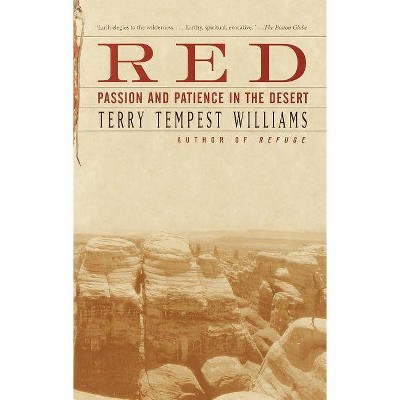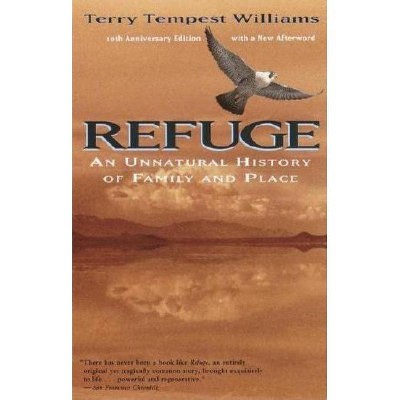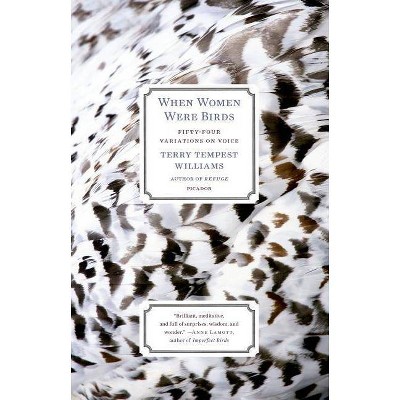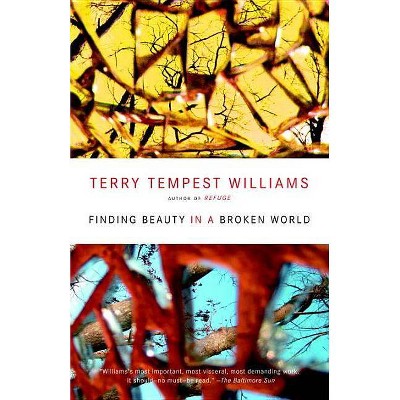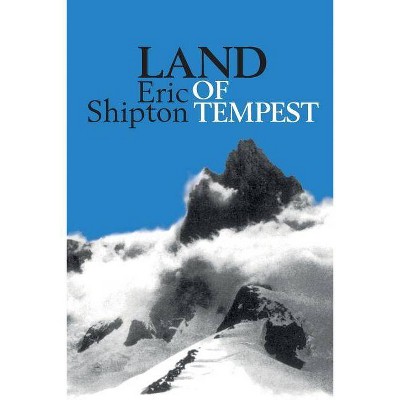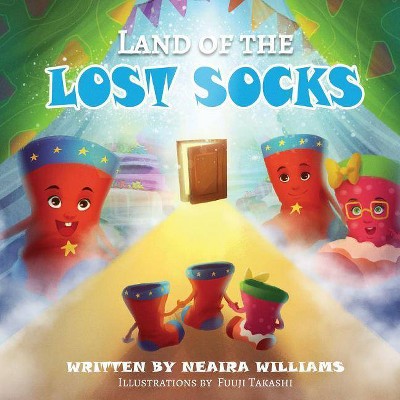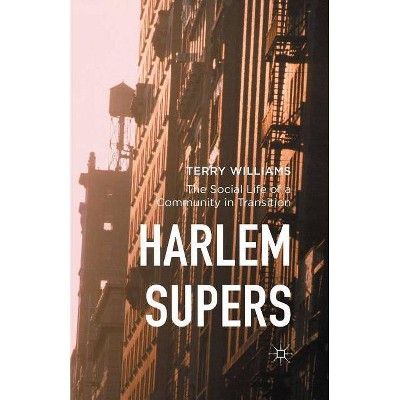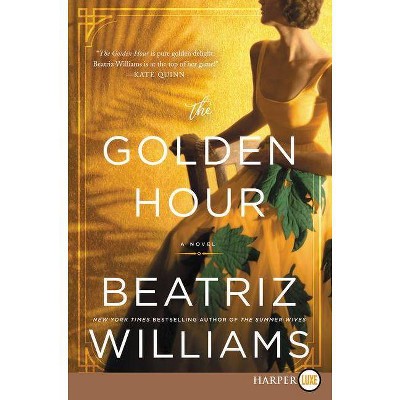The Hour of Land - by Terry Tempest Williams (Paperback)
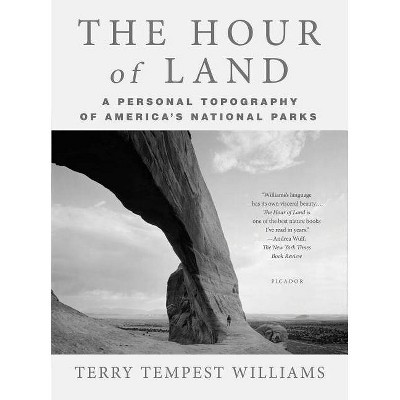
Similar Products
Products of same category from the store
AllProduct info
<p>"Williams's language has its own visceral beauty. . . .<i> The Hour of Land</i> is one of the best nature books I've read in years."--Andrea Wulf, <i>The New York Times Book Review</i><br><i></i><br>"If you have never set foot in a national park, love the wilderness, like history, or enjoy great storytelling, <i>The Hour of Land</i> is calling you."--<i>The Philadelphia Inquirer</i><br><i></i><br>"Terry Tempest Williams is a force of nature in at least two ways. First, she pleads forcefully on behalf of the natural world, especially national parks, wilderness areas, and endangered species. And, second, she writes as she damn well pleases. . . . The author's trademark poetic prose dominates every page."--Dennis Drabelle, <i>The Washington Post</i></p><p>"[A] necessary new book . . . Williams shows how national parks can be both symbols of and actual catalysts for the things that are best about America, offering a montage of grandeur that can not only make one tear up in gratitude and an embarrassing sort of patriotic pride but also demonstrate the real value of these 'wholesome' feelings to human emotional life, spurring one to engage differently with the world. . . . Williams' is only one voice in the polyphonic story of the American landscape. But it is an especially valuable one in addressing how land, even that which is nominally preserved in a state of Edenic purity, shifts with this country's social history as much as it does through geology and time."-- Jenny Hendrix, <i>Slate</i><br><i></i><br>"Whether contemplating the spiritual life she finds 'inside the heart of the wild' or marveling at the peaks and monuments that comprise 'our best idea' - the National Parks system - Williams movingly urges us to remember that 'heaven is here.'"<i>--O Magazine</i><br><i></i><br>"Williams (<i>When Women Were Birds</i>), a longtime environmental activist, adds a meditative element to memoir as she shares her abiding love for America's open spaces. . . . In passionate and insightful prose, Williams celebrates the beauty of the American landscape while reinforcing the necessity of responsible stewardship."--<i>Publishers Weekly</i><br><i></i><br>"A broadly ambitious and deeply impassioned collection of essays . . . There are few nonfiction writers who can capture the essence of the American wilderness landscape as eloquently as Williams. . . . Her distinctive prose style is capable of conveying a deep spiritual dimension within the physical setting. . . . An important, well-informed, and moving read for anyone interested in learning more about America's national parks."--<i>Kirkus Reviews</i><br><i></i><br>"Readers who like their prose ardent and their politics leaning left will take particular pleasure in <i>The Hour of Land.</i> . . . Williams is frequently a lyrical writer and an intrepid thinker. . . . Reading her is better than buying a commemorative postage stamp -- she delivers us into a more thoughtful grove."--Karen R. Long, <i>Newsday</i><br><i></i><br>"An impassioned call to preserve and protect our national park system, America's network of natural splendor, which celebrates its 100th anniversary this year. . . . Repeatedly, [Williams] calls for us to listen to the land, to respect it, to behave more responsibly. . . . [She] raises issues about movements to sell public lands, off-road vehicle damage and other 'acts of greed, ' water use, toxic emissions from oil and gas development apparently causing increased infant mortality, and other problems. Williams awakens readers to present issues easily obscured by the National Park Service's carefully cultivated, idyllic image. . . . She hopes to shake us from our fondness for souvenir T-shirts."--Irene Wanner, <i>The Seattle Times</i><br><i></i><br>"<i>The Hour of Land</i> is about National Parks as battlegrounds. What it means to hold land in trust, who defines its best uses, the tangibility of park boundaries, and whether and how we will reconcile our history with our present and future, are all tested on these lands. . . . It's a heady book. But it is an important one, too, because the chronically underfunded National Park Service--and more broadly, all our public lands--are confronting a staggering list of stressors right now. . . . <i>The Hour of Land</i> is part of a conversation to kick off the next 100 years."--<i>Outside Magazine</i></p><p>"A provocative, heartfelt collection of essays . . . As Tempest Williams turns her attention to 12 different parks, from Gates of the Arctic National Park in Alaska to Acadia National Park in Maine, she considers both the large-scale forces--economical, ecological, political--bearing upon these landscapes, and the smaller scope of her personal relationships with these individual parks. . . . We are reminded that the parks are preserved only by the grace of people, and Tempest Williams insists, in the end, that 'the history of our national parks and monuments is a history of subversion, shaped by individuals.'"--Jeffrey Zuckerman, <i>Pacific Standard Magazine</i> </p><p>"In this gorgeous collection of 12 essays, published to mark the centennial of the National Park Service, Terry Tempest Williams provides a poetic and searing portrait of the land and, by extension, of America itself."--Kelly Blewett, <i>BookPage </i><br><i></i><br>"Enrapturing and encompassing chronicle of her deeply inquisitive, meditative, and dramatic sojourns in a dozen national parks . . . illustrated with exquisite photographs by such masters as Lois Conner, Lee Friedlander, Sally Mann, and Sebasti�o Salgado, this is a uniquely evocative, illuminating, profound, poignant, beautiful, courageous, and clarion book about the true significance of our national parks. These sanctuaries, Williams muses, are not only about preservation and recreation, but also about education and remembrance."--Donna Seaman, <i>Booklist </i>(starred review) </p><p>"It would have been easy for Terry Tempest Williams to fall back on 'the best idea we ever had'--an interpretation articulated by Wallace Stegner in 1983 and popularized by Ken Burns in 2009. Instead, Williams asks hard questions about the current relevance and original goodness of America's parks. She offers a poetic revision to the Organic Act of 1916, which mandated the conservation of scenery and wildlife for the enjoyment of the public in such a manner as to leave them unimpaired. In her 400-page mission statement, Williams updates 'enjoyment' to spiritual renewal, specifies that 'the public' means more than white people, and insists that 'unimpaired' means what it says. . . . A sincerely disobedient book."--Jared Farmer, <i>Science</i><br><i></i><br>"Our public lands are ours, she argues, and it's up to us to keep them safe. It is because of this sentiment, the well-researched history, and the unforgettable prose, <i>The Hour of Land</i> will join my bookshelf's ranks of nature writers. But before that, it will travel in my daypack on train rides or a hike, its weight beside my water bottle, my smart phone, a trail map, and a blue book for the next election."--Gretchen Lida, <i>Brevity</i><br><i></i><br>"[Williams's] writing is poetic, passionate and unexpected. . . . By turns sad, despairing, and hopeful, even thrilled in the presence of natural beauty, <i>The Hour of Land</i> is emotive, intelligent and well-traveled. It is only right that Williams should celebrate the Park Service's centennial with such a remarkable collection of wisdom and scintillating lines."--Julia Jenkins, <i>Shelf Awareness</i></p>
Price History
Price Archive shows prices from various stores, lets you see history and find the cheapest. There is no actual sale on the website. For all support, inquiry and suggestion messagescommunication@pricearchive.us
